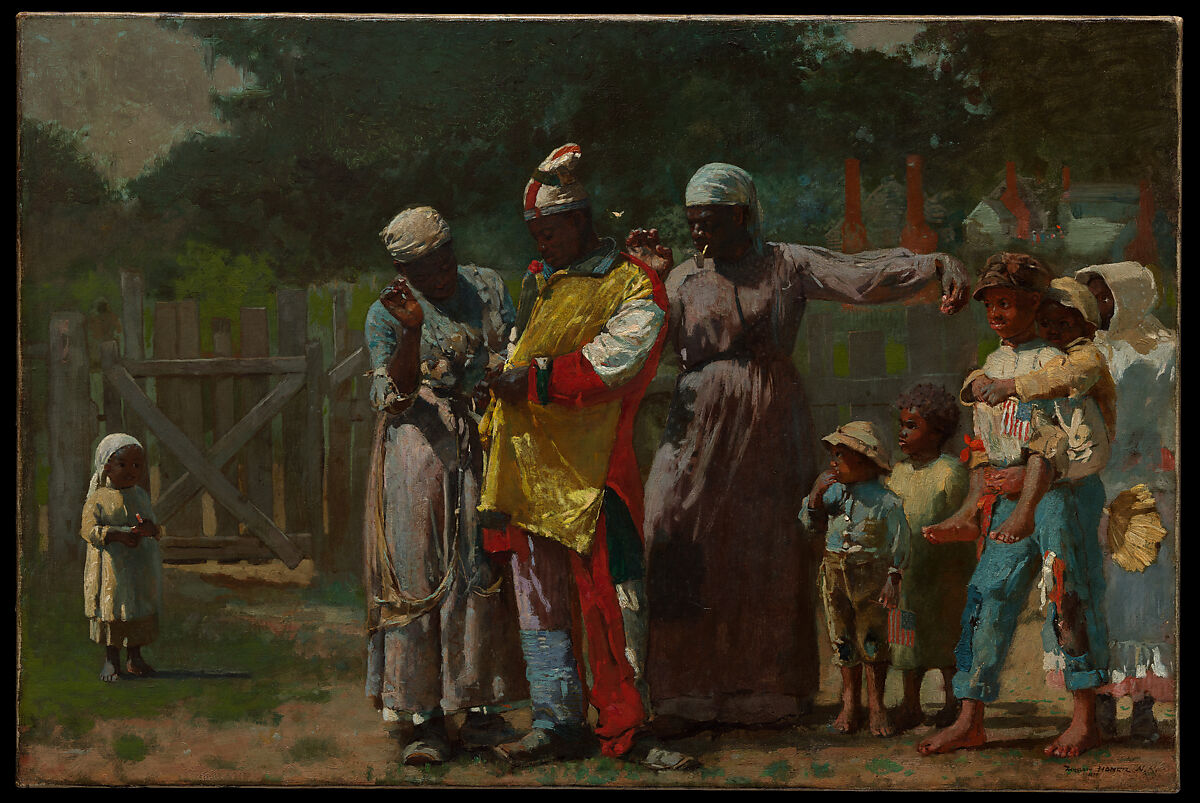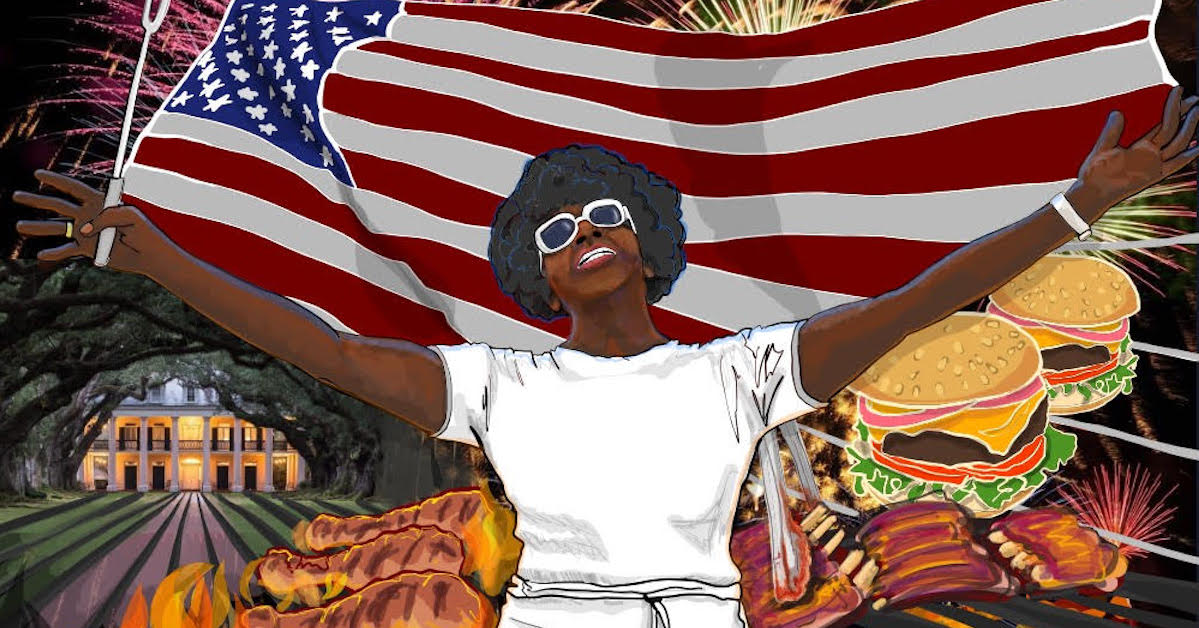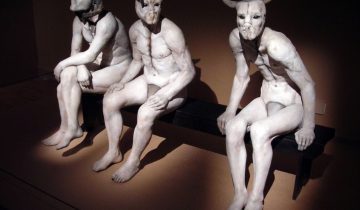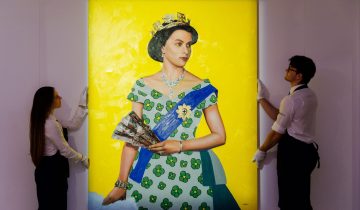Celebrating Independence: African Art in America on the 4th of July
Ah, the 4th of July! A day that evokes a sense of patriotism, pride, and unity across the United States. A day when the sky is painted with the grand hues of fireworks, and the air is filled with the wafting aroma of barbecues. But what if I told you there’s another reason to celebrate, a reason that transcends the traditional festivities of this cherished day? I am, of course, talking about the celebration of African Art in America on the 4th of July.
African Art, with its rich tapestry of colors, textures, and forms, has long captivated the global art scene. It is an art form that is as diverse as the continent it hails from, and yet, remains connected through the shared experiences and histories of its creators. So, how does this vibrant art form find its way into the heart of American celebrations on the 4th of July? Well, my dear reader, allow me to take you on a journey through time and space, as we explore the interweaving of African Art with the fabric of American society.
Historical context of African Art in America
To truly appreciate the significance of African Art in the United States, one must first venture back to the earliest days of the nation. Despite the horrors of the transatlantic slave trade, enslaved Africans brought with them a wealth of artistic traditions, which they used to express their resilience and creativity in the face of unspeakable adversity. These artistic expressions would lay the foundation for the unique and powerful African American artistic voices that would emerge in the centuries to come.
Fast forward to the early 20th century, and one cannot discuss the history of African Art in America without mentioning the Harlem Renaissance. This cultural explosion of the 1920s and 30s saw African American artists, writers, and musicians come together to celebrate their heritage and produce a wealth of artistic works that would forever change the landscape of American art. It was during this time that African Art gained recognition and respect on the American stage, with artists like Jacob Lawrence, Aaron Douglas, and Augusta Savage leading the charge.
This recognition and respect would only grow in the decades that followed, as African Art continued to inspire and influence both American and global art scenes. From the civil rights movement to the Black Arts Movement, the artistic contributions of African Americans have been instrumental in shaping the cultural and social fabric of the United States.

Forms of African Art showcased during the 4th of July
On the 4th of July, the kaleidoscope of African Art finds a place of honor amidst the celebrations of American independence. From coast to coast, a myriad of artistic expressions grace the nation’s celebrations, each telling a story of resilience, pride, and identity.
Visual arts, both traditional and contemporary, take center stage during these festivities. Intricate sculptures carved from wood, metal, or stone speak to the ancient artistic traditions of Africa, while modern paintings and textiles fuse the old with the new, creating a visual symphony of colors and patterns that captivate the imagination.
But it is not just the visual arts that shine on this day. The performing arts, too, hold a special place in the hearts of those who partake in the celebrations. Traditional African dances, pulsating with the rhythm of drums, transport onlookers to the heart of the continent, while contemporary dance forms infuse African heritage with the modern beats of today. Music, an integral aspect of African culture, fills the air with melodies that resonate with the spirit of freedom and independence. And theater, that most powerful of storytelling mediums, brings to life the stories of the African and African American experience, in all its complexities and triumphs.
Literary arts, too, find their place in the celebrations. Poets and writers recite verses that tell of the struggles, dreams, and aspirations of the African American community, offering a glimpse into the hearts and minds of those who have shaped the nation’s history.
Significance of incorporating African Art in 4th of July celebrations
But why, one might ask, is it important to include African Art in the festivities of the 4th of July? The answer, my dear reader, lies in the very essence of what the day represents. The 4th of July is not only a celebration of the birth of a nation but also a celebration of the diverse tapestry of cultures, histories, and peoples that make up the United States.
Incorporating African Art into the celebrations serves to raise awareness of the rich history and culture of African Americans, reminding us all of the integral role they have played in shaping the nation’s identity. It encourages dialogue on the importance of diversity and fosters understanding and empathy among different cultural groups.
Moreover, the inclusion of African Art in the 4th of July celebrations serves as a powerful reminder that the United States is a nation built on the principles of freedom, equality, and opportunity for all. It is a message of unity, a testament to the resilience and strength of the African American community, and a celebration of the beauty and creativity that emerges when diverse cultures come together.
Examples of African Art events during the 4th of July
Across the country, numerous events showcase the richness and diversity of African Art during the 4th of July. Art exhibitions and fairs, such as the Harlem Fine Arts Show, display an array of stunning artworks from both established and emerging African American artists, offering the public a chance to appreciate and acquire pieces that speak to the heart.
Performances and concerts abound, with events like the Essence Festival in New Orleans featuring some of the most talented African American musicians, dancers, and actors in the nation. Educational workshops and seminars, such as those held at the National Museum of African Art in Washington, D.C., provide an opportunity for people of all ages to learn about and engage with the history and culture of African Art.
And so, my dear reader, as the sky bursts into a glorious display of fireworks on the 4th of July, let us remember the vibrant and powerful African Art that has enriched our nation’s cultural tapestry. It is a story of resilience, creativity, and unity that has helped shape the United States into the diverse and vibrant nation it is today.
The impact of African Art on our 4th of July celebrations is a testament to the strength of our national identity, and the power of cultural understanding. It is a call to action, urging us to continue supporting African Art and artists, and to advocate for inclusive and diverse celebrations that truly represent the spirit of America.
As we raise our glasses in celebration of independence, let us also raise our voices in celebration of the African Art that has become an integral part of the American story. For it is in the blending of colors, textures, and forms that we find the true beauty of independence – a beauty that is as vast and diverse as the nation it represents.
FAQ – Celebrating Independence: African Art in America on the 4th of July
Q: What does the 4th of July mean to African Americans?
A: The 4th of July holds different meanings for African Americans, as it does for all Americans. For some, it is a day to celebrate the nation’s independence and the ideals of freedom, equality, and opportunity. It is also a day to honor the contributions of African Americans to American society, as well as an opportunity to showcase and celebrate their rich cultural heritage through the incorporation of African Art in various festivities.
Q: What are the traditions of the 4th of July in America?
A: Traditional 4th of July celebrations in America often include a variety of activities, such as parades, fireworks displays, barbecues, and picnics. Families and friends gather to enjoy outdoor activities, live music, and patriotic events, while public spaces host events that showcase American culture, history, and diversity. In recent years, there has been a growing emphasis on celebrating the contributions of various cultural groups, including African Americans, through events that highlight their art, music, and traditions.
Q: How do we celebrate Independence Day on the 4th of July?
A: Independence Day is celebrated on the 4th of July through a wide range of activities that bring people together to honor the nation’s history, culture, and diversity. These activities include parades, fireworks displays, barbecues, picnics, and concerts, as well as events that showcase the artistic and cultural contributions of different communities, such as African American art exhibitions, performances, and workshops. The day is a time for Americans to come together in celebration of the nation’s founding principles and the tapestry of cultures that make up the United States.
Q: Why is the 4th of July such an iconic day in American history?
A: The 4th of July is an iconic day in American history because it marks the anniversary of the adoption of the Declaration of Independence in 1776. This document, which declared the thirteen American colonies as independent from British rule, laid the foundation for the United States as a nation built on the principles of freedom, equality, and democracy. As such, the 4th of July has become a powerful symbol of American independence and unity, and a day to celebrate the nation’s history, culture, and diversity.





 No products in the basket.
No products in the basket.